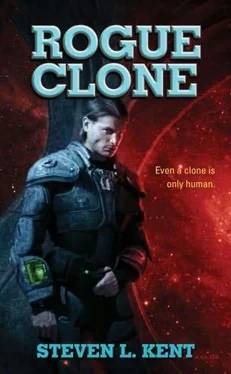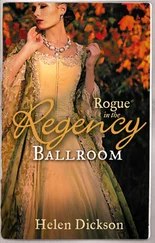Steven Kent - Rogue Clone
Здесь есть возможность читать онлайн «Steven Kent - Rogue Clone» весь текст электронной книги совершенно бесплатно (целиком полную версию без сокращений). В некоторых случаях можно слушать аудио, скачать через торрент в формате fb2 и присутствует краткое содержание. Жанр: Боевая фантастика, на английском языке. Описание произведения, (предисловие) а так же отзывы посетителей доступны на портале библиотеки ЛибКат.
- Название:Rogue Clone
- Автор:
- Жанр:
- Год:неизвестен
- ISBN:нет данных
- Рейтинг книги:3 / 5. Голосов: 1
-
Избранное:Добавить в избранное
- Отзывы:
-
Ваша оценка:
- 60
- 1
- 2
- 3
- 4
- 5
Rogue Clone: краткое содержание, описание и аннотация
Предлагаем к чтению аннотацию, описание, краткое содержание или предисловие (зависит от того, что написал сам автор книги «Rogue Clone»). Если вы не нашли необходимую информацию о книге — напишите в комментариях, мы постараемся отыскать её.
Rogue Clone — читать онлайн бесплатно полную книгу (весь текст) целиком
Ниже представлен текст книги, разбитый по страницам. Система сохранения места последней прочитанной страницы, позволяет с удобством читать онлайн бесплатно книгу «Rogue Clone», без необходимости каждый раз заново искать на чём Вы остановились. Поставьте закладку, и сможете в любой момент перейти на страницу, на которой закончили чтение.
Интервал:
Закладка:
This guy was not as reverent as his partner in the cockpit. He moved through quickly, moving the bodies as little as possible, and saying, “Dead. This one’s dead, too. Dead. Dead.”
He reached a body in a corner of the cabin. This man’s arm hung in the air like a school kid looking to ask his teacher a question. “This one got flamed,” the tech said over the speaker.
The man’s hair and uniform had apparently caught on fire. The flames had singed his skin, burning it up like a log in a fire. The face, with its lips parted to reveal a skeletal smile, was unidentifiable.
Back on the first screen, the engineer in the cockpit took readings using the C-64’s sensors. He took an air reading. “High ozone. High carbon dioxide. You reading this?”
“I see it,” the controller said.
“Am I cleared to retrieve the ship?”
“Unless one of the passengers objects’,” the controller said.
Both men laughed.
“What did he find?” I asked.
“Ozone,” said the emergency systems operator. “That means the broadcast engine malfunctioned.”
I did not understand the relationship between the broadcast engine and ozone. “How do you know it was the broadcast engine?” I asked.
“Ozone is what you get when you fire up a broadcast engine.”
“How do you know it malfunctioned?” I asked.
“They’re dead, ain’t they?” the operator quipped.
I could not argue with that one.
CHAPTER THIRTEEN
The colonel had a cart waiting for us at the bottom of the control tower. An MP drove us out to the edge of the docks, and there we waited for ten long minutes while the tower guided Admiral Klyber’s C-64 transport in through the aperture.
Through the wavy lens of the electroshields, I saw the big Mercury-class transport sidle into the aperture. It entered the landing bay nose first, then hung in the air for several seconds, its bloated fuselage swaying slightly like a chandelier in a breeze.
“What is a ghost ship?” I asked the MP.
“Dead crew,” he said.
“And the passengers?” I asked.
“I don’t know,” he shrugged as he spoke. “Once the crew is dead there’s not much hope for the passengers.”
Landing gear extended from the bottom of Klyber’s “ghost ship” as it dropped down to the deck on the other side of the lock. Before this moment, I had never appreciated the sheer bulk of a C-64. The rods that held the landing gear were four inches in diameter, as big around as a mortar shell. The struts were thick as beer bottles. The ship was solid but it looked like an apparition through the turbulent veil of the electroshields. I watched it closely as I pulled on the blue soft-shell jacket of a civilian security man.
“What the speck do you think you’re doing?” somebody barked at me. I turned around to see the head of Golan Dry Docks emergency services, a slightly chubby man with a thick neck and a spiky buzz cut. He was a civilian, and he apparently had very little respect for the military.
“Lay off, Smith,” the colonel said. “He’s with me.”
“That’s just what I need, a damned Liberator running around loose in my operation.” The man’s face turned a deep red as he spoke. He lowered his voice but his tone remained unreasonable. Since the Golan facility was a public sector operation, this man undoubtedly outranked the colonel.
Struggling to keep control of his temper, the colonel zipped the front of his soft-shell coat closed. The quarter-inch-thick plasticized material was just stiff enough to form a tent-like slope over his shoulders. Frowning fiercely, he said, “Harris is Klyber’s head of security. He has the right to be here.”
“He doesn’t have shit in my landing bay,” the emergency services chief snapped.
“I’ll take responsibility for him,” the colonel said.
“Then it’s your ass,” the chief said. He looked down at the tarmac and shook his head.
While they had this conversation, the transport rolled through the first gate of the docks. Once that sealed behind it, the second electroshield opened and the C-64 pulled within a few feet of the emergency teams.
Five medics boarded the transport first. The colonel and I came in on their heels. They stopped to inspect the bodies in the main cabin, an area that looked more like the executive suite of a luxury hotel than the interior of a military transport. The soothing soft light of table lamps illuminated the cabin.
Even in my emergency armor I could smell the acrid scent of ozone, the smell of overheated batteries, and charged copper wires, as I entered the cabin. This smell was soon drowned out by a stronger scent—the dusty smell of burned meat. Two medics crouched in front of the charred body in the corner of the cabin.
I hurried across the thick ivory-colored carpeting and past the living room fixtures and entered a hall that led to the rear of the craft. I had traveled with Bryce Klyber in the past. He always reserved a private cabin for himself in the rear of the ship. I knew where I would find him.
Two Marines—clones—had stood guard by his door. Both men had collapsed in place, their M27s still strapped across their shoulders. The color of their faces had turned to a deep violet, and their black tongues hung from their mouths. I did not have time to feel sorry for them. That might come later, though I doubted it would. Pity and empathy were emotions that seldom troubled me.
The door to Klyber’s cabin was locked. Without looking back to the colonel for permission, I kicked the door open. The door swished across the carpeting, stirring a small cloud of dust. I touched the surface of the door then looked at my glove. A fine layer of dust covered the tip of my finger.
“Ash,” a medical tech said as he and a partner squeezed past the colonel and entered the narrow hallway. They carried a stretcher. “It’s everywhere in here …the carpets, the walls, the bodies.”
Hearing the word “bodies,” I snapped out of my haze. I watched for a moment as the medics pulled one of the guards onto their stretcher, then I turned and entered Admiral Klyber’s cabin. I spotted the admiral immediately.
The room was a perfect cube—fifteen feet in every direction. It had a captain’s bed built into one wall and a workstation built into another. Bryce Klyber sat flaccid at his desk, still wearing his whites, the gold epilates gleaming across his hunched shoulders. The admiral’s head lay on the desk, his left cheek resting on the keyboard of his computer, his blue-black lips spread slightly apart and his swollen black tongue lolling out. Klyber’s bright blue eyes stared at the wall across the room.
Klyber seemed to have shrunk in death the way large spiders curl in their legs and compress when you kill them. Tall, thin, and intense, Klyber’s presence used to fill the room. Now, slumped over his desk, he looked like nothing more than a fragile old man.
Seeing Klyber splayed over his desk, with his posture curved and his eyes so vacant, seemed almost indecent, like I was seeing him naked. Here was a man whose uniform was always pressed and whose posture was always erect. He was the epitome of the aristocratic officer. Now his cap sat upside down on the desk before him and his arms dangled to the floor. A small stream of saliva ran from the corner of his mouth. It simply wasn’t dignified—and above all else in life, Bryce Klyber had always been dignified.
Standing in the door, the colonel watched me as I checked Klyber for a pulse. I don’t know why I bothered. I suppose I did not know what else to do. I thought about propping Klyber upright in his seat, replacing his cap, and letting him pass into history with his majesty intact, then dismissed the idea.
As if reading my thoughts, the colonel asked, “You’re not going to leave him like that?”
Читать дальшеИнтервал:
Закладка:
Похожие книги на «Rogue Clone»
Представляем Вашему вниманию похожие книги на «Rogue Clone» списком для выбора. Мы отобрали схожую по названию и смыслу литературу в надежде предоставить читателям больше вариантов отыскать новые, интересные, ещё непрочитанные произведения.
Обсуждение, отзывы о книге «Rogue Clone» и просто собственные мнения читателей. Оставьте ваши комментарии, напишите, что Вы думаете о произведении, его смысле или главных героях. Укажите что конкретно понравилось, а что нет, и почему Вы так считаете.












